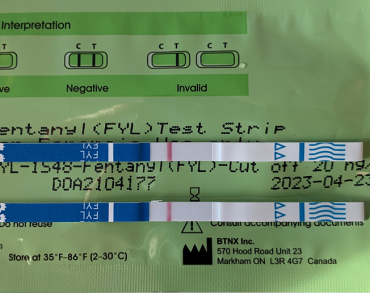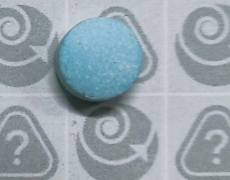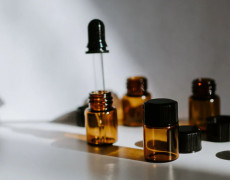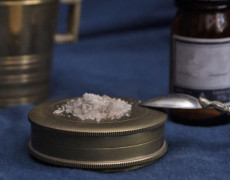Everyone’s talking about fentanyl


Fentanyl, a synthetic opioid 50 to 100 times more potent than morphine, has been responsible for thousands of deaths in the US every year.
Fentanyl was rarely seen in New Zealand's illicit drug market, but in June 2022 we issued an alert after a fentanyl-type substance was detected in a white powder linked to multiple hospitalisations. It’s important to be informed about the risks posed by this substance, and how you can stay safer.
What is it?
Fentanyl is a prescription drug that is similar to morphine, but 50 to 100 times more potent. It is used to treat patients with severe pain, such as after surgery, and is sometimes used to treat chronic pain from a terminal disease, like cancer. Prescription fentanyl is usually applied in a patch on the skin, but it can also be given as a shot, or a lozenge.
It is also illegally made in labs, and this synthetic fentanyl is usually sold as powder, dropped onto blotter paper, put in eye droppers and nasal sprays, or made into pills that looks like other prescription opioids.
A big risk is that someone could be taking fentanyl without their knowledge, as it can be mixed with other drugs, such as MDMA, cocaine, methamphetamine, or heroin. This significantly increases the risk of overdose as someone could unwittingly be consuming a far stronger dose than they’re used to.
In New Zealand, KnowYourStuffNZ first identified fentanyl in a heroin sample at a festival in 2018. It is highly recommended that users of opioids test for fentanyl contamination – fentanyl testing strips are available that can detect small amounts of fentanyl and analogues. The Hemp Store and Needle Exchanges stock these strips.
You can find out more about how to check for fentanyl in powder and pills here, from our mates at The Level.
How to check for fentanyl
Stay safer by staying informed. Sign up to receive alerts and notifications about any dangerous drugs in NZ. Check out the alerts page to see what we've already found.
What are the effects?
- Intense, short-term high
- Temporary feelings of extreme happiness
- Slowed breathing, or difficulty breathing
- Drowsiness
- Nausea
- Sedation
- Confusion
- Unconsciousness
- Seizures
As mentioned, fentanyl is much stronger than morphine and its potency makes it highly addictive.
Like other opioids, fentanyl affects the areas of the brain that control pain and emotions. The brain adapts quickly to this, making it hard to feel pleasure from anything except the drug itself. The euphoric effects wear off the longer a person uses the drug, which leads to an increase in dosage to achieve the same effect and an increased risk of overdose.
Naloxone can be used in overdoses from most opioids - it's a drug that can temporarily reverse the effects of an overdose and give you more time to get medical help. Some pharmacies and needle exchanges stock naloxone. Find out more about how to use it here.
What to do in an emergency
It's important to know how to recognise an opioid overdose. If you think someone is suffering from an overdose:
- Call 111 immediately and ask for an ambulance.
- Don’t panic. Stay calm.
- Keep yourself safe. Watch out for used needles and blood on the bed or floor etc.
- Check if the person is conscious by gently shaking them and calling their name or asking if they’re ok. This may bring the person round.
- If the person does not respond, check whether they are breathing.
- Check their airway. Tilt their head back enough to open their airway. Remove anything from their mouth like food or vomit.
- Are they breathing? Put you ear next to their mouth. Can you feel any breath? Is their chest rising?
- If they are breathing put them in the recovery position.
- If they are not breathing start CPR.
Check out St John’s helpful first aid guide for dealing with an overdose.
If you have any concerns about your own drinking or drug taking, get in touch with the Alcohol Drug Helpline Call 0800 787 797, or text 8681, to speak with a trained counsellor – they’ll be able to provide you with helpful information, insight and support. They’re available 24/7, all calls are free and confidential. You can also chat with the team through the website.
Latest Alerts & Notifications

Highly potent synthetic opioid detected in fake diazepam tablet

Alpha-PVP like substance misrepresented as MDMA in Christchurch

Heroin sold as ketamine in Auckland region

Highly potent synthetic opioid misrepresented as butonitazene

Latest Articles

15 Apr 2024
Thinking of using GBL/GHB?

12 Apr 2024
Ketamine and bladder damage – know the risks

8 Mar 2024
Synthetic cathinones explained

22 Feb 2024
What’s happening with synthetic cannabinoids?

31 Jan 2024
What is tuci?

19 Jan 2024
Answering some common questions about MDMA

10 Jan 2024
Understanding the risks of the comedown

5 Jan 2024
Looking after your mental health

15 Dec 2023
Tips for a safer night out

12 Dec 2023
To mix it is to risk it
